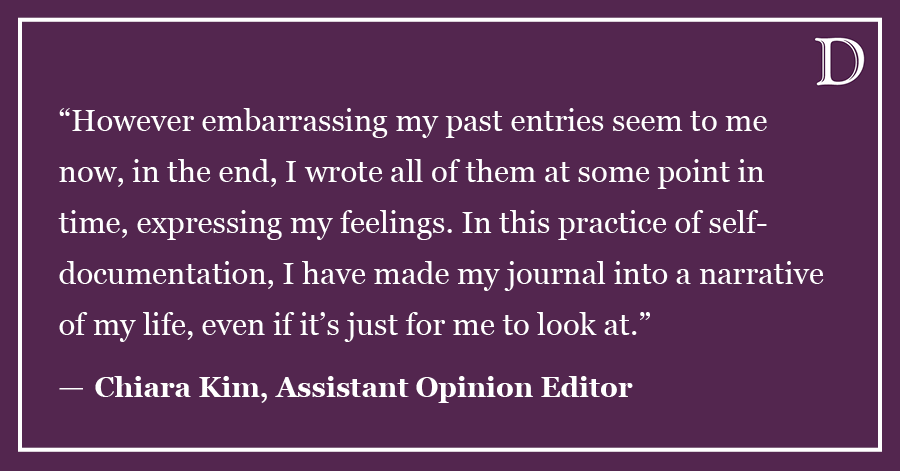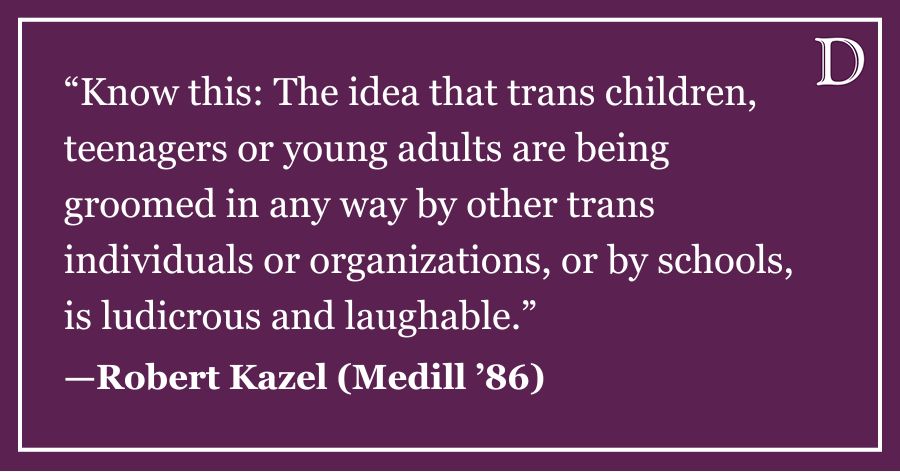
If you did not come across this column via a perusal of www.dailynorthwestern.com or The Daily Northwestern print edition, chances are that a link on Facebook brought you here. The fact that many of you found this column via Facebook proves my point in itself — that people should post on Facebook more often if they want their ideas to reach their friends.
Just a few years ago, posting statuses and writing on friends’ walls was the “cool” thing to do. It is extremely difficult to gather evidence on the matter, but it is easy to tell that those activities have dramatically declined.
A possible reason for this is the collective peer pressure that posting garners. As more say, “I don’t really post on Facebook,” with a faintly condescending tone, social media actives eventually respond to the cumulative effect and curtail their own posts.
Additionally, the common occurrence of people making fun of someone’s posts discourages others from posting in the future and potentially having their ideas face the same judgment from their thousands of friends. I feel a pit in my stomach every time I begin typing in the “What’s on your mind?” box. Sometimes I will not even have enough confidence to hit “Enter.” Even anxious high school Bob would never have had that feeling.
The snowball effect leads to a world in which posting on Facebook is such a rarity that each post garners a high amount of public attention. On Twitter, the frequency of tweets forces many tweets from just minutes ago far down a user’s feed, whereas a Facebook post has a much greater shelf life — especially because Facebook puts your best friends’ posts at the top of your feed and allows posts from hours, days, even years ago to resurface once it receives interaction. Consequently, thousands of procrastinating teenagers will see your post over the course of time, whereas on Twitter, maybe a couple friends who happen to be on Twitter at the time will glance at your post.
If we consider Facebook as an economic market, all the causes we have talked about lead to a shortage in the market of posts. The supply side of posting and the fear of posting something for everyone to see is a leap of faith that a diminishing number of us has the confidence to make. On the demand side, the average user 15 hours and 33 minutes on Facebook per month — a number that is certainly higher among college students — as he or she scans the social media site to provide an excuse to further postpone homework. We’ve all checked Facebook a dozen times per hour instead of doing work and found ourselves upset that there is nothing new there.
This increased attention on every post has caused many of us, myself included, to run for the hills of Twitter where we feel a greater freedom to speak our minds. As posting on Twitter becomes more popular and posting on Facebook heads in the opposite direction, I encourage you to post on Facebook more if you want to truly be heard rather than be buried in an endless feed of 140-character fragments. Facebook has allowed my outlandish sports blog, written with two of my friends, to reach thousands of viewers. Without Facebook, there is hardly any other way people would have the ability to access our site, much less know of its existence.
Facebook remains the social media site where nearly everyone participates, searching for a means of procrastination or of finding out what their friends — oftentimes in different parts of the world — are up to. Your Facebook friends want to see what you have to say, not privately criticize your posts. If the latter is the case, then they’re not your friends anyway.
We all have the kooky relative or weird friend from high school who monopolizes our news feed, and our general response is that these people do not “get” how to use Facebook. However, these people who allow their thoughts and ideas to surface perhaps “get” it more than we do.
Bob Hayes is a Weinberg freshman. He can be reached at [email protected]. If you would like to respond publicly to this column, send a Letter to the Editor to [email protected].













